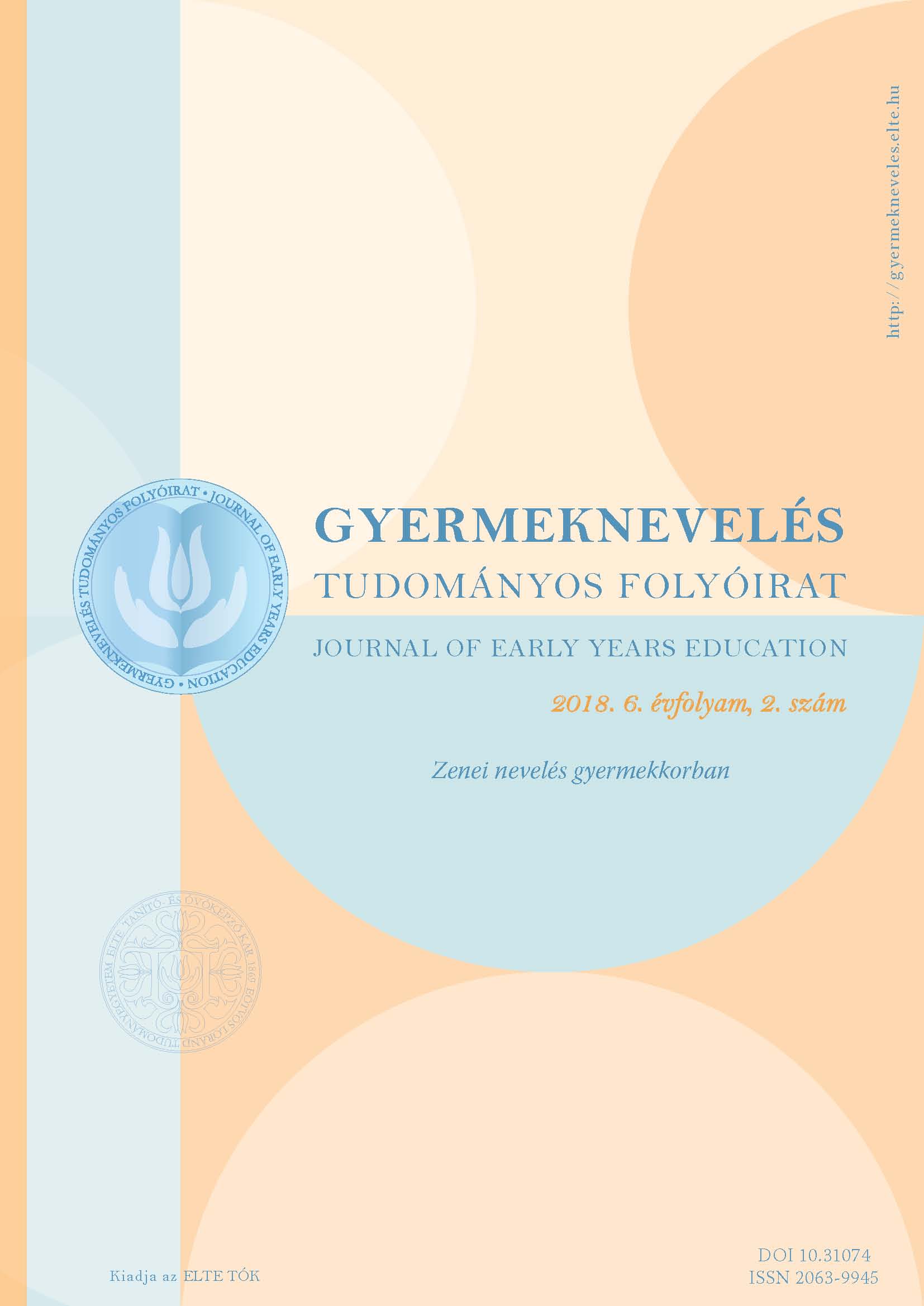Exploring the relationship between music reading and orientation skills in an online test environment
DOI:
https://doi.org/10.31074/gyn201824963Keywords:
music reading, spatial orientation, music school students, solfege, online testAbstract
In our research we aimed to test one of the core components of music literacy, i.e. music reading as well as its relationship with spatial orientation skill among 9–12 year-old music students (n=124). Melodic reading, rhythmic reading and audiation skills of students were tested with our self-developed online tool, where tasks with music symbols and signs were also integrated. They were supplemented with a self-developed spatial orientation ability test. Although there was no significant difference between the successive grades, the music reading skills improved significantly during the fourth and sixth grades. Moderate and strong correlations were found between music reading achievement and the components of music reading, i.e. melodic reading, rhythmic reading, audiation, music symbols and signs. Significant correlation can also be observed between spatial orientation and music reading skills. There were strong correlations between certain music subjects, i.e. orchestra and music history and the music reading achievement. We found significant correlations between students’ attitude towards some activities of the solfege lessons, i.e. singing and music listening. Music reading achievement does not depend on maternal education or on the socio-economic status. Apart from its theoretical significance, the practical benefit of our research lies in the founding of the development programs for music reading.
Downloads
Downloads
Published
How to Cite
Issue
Section
License
Copyright (c) 2018 Author

This work is licensed under a Creative Commons Attribution-NonCommercial-ShareAlike 4.0 International License.

